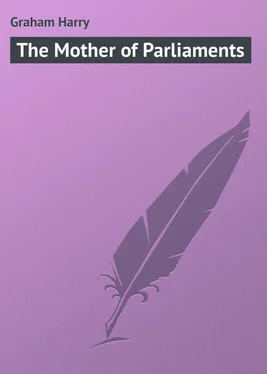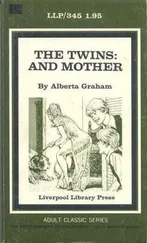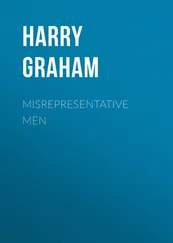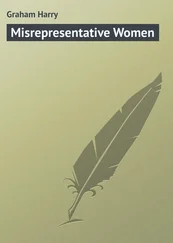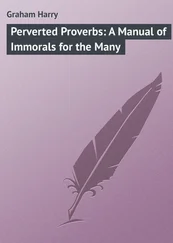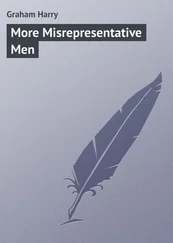Harry Graham - The Mother of Parliaments
Здесь есть возможность читать онлайн «Harry Graham - The Mother of Parliaments» — ознакомительный отрывок электронной книги совершенно бесплатно, а после прочтения отрывка купить полную версию. В некоторых случаях можно слушать аудио, скачать через торрент в формате fb2 и присутствует краткое содержание. Жанр: foreign_prose, на английском языке. Описание произведения, (предисловие) а так же отзывы посетителей доступны на портале библиотеки ЛибКат.
- Название:The Mother of Parliaments
- Автор:
- Жанр:
- Год:неизвестен
- ISBN:нет данных
- Рейтинг книги:5 / 5. Голосов: 1
-
Избранное:Добавить в избранное
- Отзывы:
-
Ваша оценка:
- 100
- 1
- 2
- 3
- 4
- 5
The Mother of Parliaments: краткое содержание, описание и аннотация
Предлагаем к чтению аннотацию, описание, краткое содержание или предисловие (зависит от того, что написал сам автор книги «The Mother of Parliaments»). Если вы не нашли необходимую информацию о книге — напишите в комментариях, мы постараемся отыскать её.
The Mother of Parliaments — читать онлайн ознакомительный отрывок
Ниже представлен текст книги, разбитый по страницам. Система сохранения места последней прочитанной страницы, позволяет с удобством читать онлайн бесплатно книгу «The Mother of Parliaments», без необходимости каждый раз заново искать на чём Вы остановились. Поставьте закладку, и сможете в любой момент перейти на страницу, на которой закончили чтение.
Интервал:
Закладка:
Our modern parliamentary system comprises the party spirit as its most vital element, and owes its success to the fact of being government by party and not by faction. 31 31 "I have a maxim," wrote Horace Walpole to his friend Montague in 1760, "that the extinction of party is the origin of faction." "Letters," vol. iii. 370.
The existence of an admittedly constitutional body perpetually opposed to the Government of the day – "His Majesty's Opposition," as it has been called since 1826 – is now recognised as a very necessary portion of the Parliamentary machine. The principle of fairness to the minority is never lost sight of, and expresses itself in many different ways. When, for instance, the Leader of the Opposition gives notice of a motion of censure on the Government, the latter consider it their duty to accord their critics an early opportunity for its discussion; and, generally speaking, the due consideration of the rights of minorities is among the primary instincts of party government. The excellent effects of this system are obvious. Of the two ways of obtaining political adherents the attachment of party is infinitely preferable to the attachment of personal interest, formerly so prolific a source of corruption. Party feeling may also be said to have created general rules of politics, similar to a general code of morals by which a man may "walk with integrity along the path chosen by his chiefs, surrounded and supported by his political colleagues."
Opposition is invaluable as providing a stern criticism of the Government's policy; it can also very often be of service to the cause it is intended to injure. It excites a keener public curiosity, by directing attention to the motives of those whom it suspects. And "the reproaches of enemies when refuted are a surer proof of virtue than the panegyrics of friends." 32 32 See Parr's "Discourse on Education," p. 51.
That the system must possess certain disadvantages is inevitable. It no doubt engenders animosity and provokes violent contentions: it stimulates politicians to impute to their opponents corrupt motives which they could not for a moment imagine themselves capable of entertaining. It may also on occasion tempt them to continue obstinately in the support of wrong, because the admission of a mistake would be hailed as a triumph for their enemies. "The best cause in the world may be conducted into Faction," as Speaker Onslow said; "and the best men may become party men, to whom all things appear lawful, which make for their cause or their associates." 33 33 "Anecdotes and other miscellaneous pieces" left by the Rt. Hon. Arthur Onslow. (From the MS. at Clandon.)
But as a rule the game of politics is played with commendable fairness and an absence of undue acrimony. The Opposition, whose well-known duty it is "to oppose everything, to propose nothing, and to turn out the Government," 34 34 This saying has often been wrongly attributed to Lord Randolph Churchill. That statesman's most famous maxim on the subject of Opposition is given in his son's "Life" (p. 188-9): "Whenever by an unfortunate occurrence of circumstances an Opposition is compelled to support the Government," said Lord Randolph, "the support should be given with a kick and not with a caress, and should be withdrawn on the first available moment."
rarely makes its attacks the vehicle for personal spite. Politicians of adverse views do not carry their antagonism into private life, and off the stage of Parliament the bitterest opponents are able to exist upon amicable terms. Occasionally, however, political differences have been the cause of ruptured friendship. When Burke made a violent attack upon Fox, in 1791, on the Canada Bill, he declared that if necessary he would risk the latter's lifelong friendship by his firm and steady adherence to the British Constitution. Fox leaned across and whispered that there was no loss of friends. "Yes," replied Burke, "there is a loss of friends. I know the price of my conduct. I have done my duty at the price of my friend. Our friendship is at an end!" So terminated an intimacy of twenty-five years' standing. Such an incident may, nevertheless, be considered exceptional, the relations of antagonists being usually of a most harmonious kind. Sir Robert Peel and Lord John Russell would often be seen together engaged in friendly conversation. O'Connell once walked arm in arm down Whitehall with Hughes Hughes, the member for Oxford, whose head he had but recently likened to that of a calf. 35 35 This was evidently a favourite simile of O'Connell's. He used it again with reference to Mr. Shaw, member for Dublin University, in the debate on the resolution for giving a grant to Maynooth College for the education of Roman Catholics.
And the present Prime Minister and Leader of the Opposition are doubtless able to play bridge or golf together without actually coming to blows. In spite, therefore, of much criticism, what Emerson calls "that capital invention of freedom, a constitutional opposition," 36 36 "English Traits," p. 46.
has been found to be the most practical and satisfactory means of carrying on government.
CHAPTER II
THE HOUSE OF LORDS
No constitutional principle has been so strongly criticised and so freely abused as the one embodied in the hereditary chamber which forms so important a branch of our legislature. Pulteney labelled the House of Lords a "hospital for invalids"; Burke contemptuously referred to it as "the weakest part of the Constitution"; Lord Rosebery has compared it to "a mediæval barque stranded in the tideway of the nineteenth century." A more democratic modern statesman, who doubtless hopes —
"To build, not boast, a generous race;
No tenth transmitter of a foolish face,"
has declared the only legislative qualifications of peers to consist in their being the first-born of persons possessing as little qualifications as themselves. While another politician cynically observes that they represent nobody but themselves, and enjoy the full confidence of their constituents.
The House of Lords has long been the butt of the political satirist, and parliamentary reformers have attacked it for years patiently and persistently, hitherto without much success. "We owe the English Peerage to three sources," said a character in "Coningsby"; "the spoliation of the Church; the open and flagrant sale of its honours by the elder Stuarts; and the borough-mongering of our own times." And this bitter criticism is often quoted to prove the weakness of any form of hereditary government.
The suggestion that heredity can confer any peculiar qualifications, rendering a person more fit than his fellows for parliamentary power, is no doubt illogical, but not more so perhaps than a thousand other ideas which govern the affairs of men. The form of government by majority, for instance, – which Pope called "the madness of the many for the gain of a few" – is obviously open to criticism. Hereditary legislation has, at any rate in the eyes of its supporters, the merit of having answered well enough in practice, and, however theoretically indefensible, is not more so than hereditary kingship. The Sovereign does not inherit sagacity any more than the Duke of Norfolk, as Lord John Russell justly observed, and it would be unwise as well as unsafe to hang the Crown on the peg of an exception. It is as well, however, to remember that the Sovereign is a constitutional monarch whose powers nowadays are much restricted, whereas the Lords have the right to exercise a legislative veto the use of which kings have long since resigned.
Talent is not hereditary. No man chooses a coachman, as the first Lord Halifax once remarked, because his father was a coachman before him. But the descendant of a long line of coachmen is likely to know more about the care of horses than the grandson of a pork butcher, however eminent; and the scion of a race of legislators is at least as fully qualified for the duties of a legislator as many a politician whose chief reason for entering Parliament is the desire to add the letters M.P. to his name. Nevertheless, as has been recently pointed out by tactless statisticians, the great men of the past have but seldom bequeathed their admirable qualities to their eldest sons, and in a list of modern statesmen will be found but few of the names once famous in English history.
Читать дальшеИнтервал:
Закладка:
Похожие книги на «The Mother of Parliaments»
Представляем Вашему вниманию похожие книги на «The Mother of Parliaments» списком для выбора. Мы отобрали схожую по названию и смыслу литературу в надежде предоставить читателям больше вариантов отыскать новые, интересные, ещё непрочитанные произведения.
Обсуждение, отзывы о книге «The Mother of Parliaments» и просто собственные мнения читателей. Оставьте ваши комментарии, напишите, что Вы думаете о произведении, его смысле или главных героях. Укажите что конкретно понравилось, а что нет, и почему Вы так считаете.
